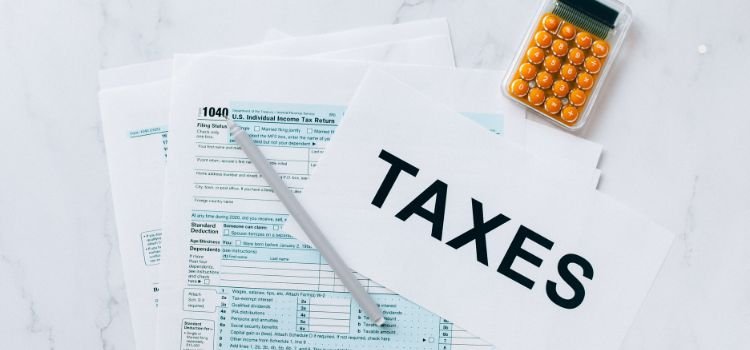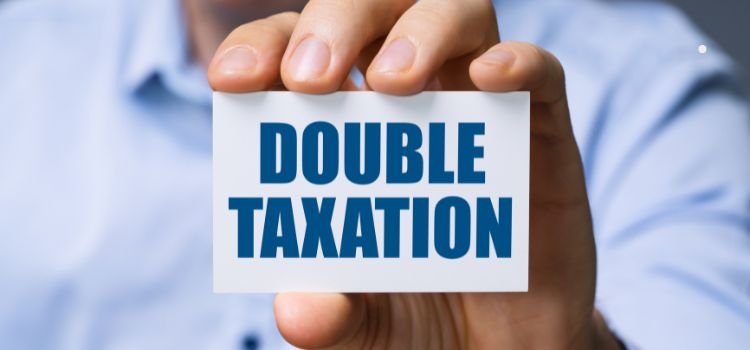Moving to the UK can open up new opportunities, but it also introduces a whole new tax system that may not work the way you’re used to.
If you’re an expat earning, investing, or holding assets across borders, UK tax rules can feel complicated and overwhelming.
You might be wondering:
“Do I need to pay tax on income from back home?”
“What if I send money to the UK? Will I be taxed?”
“How do I make sure I’m not taxed twice?”
These are important questions, and understanding how the UK taxes expats is key to protecting your income, managing your reporting obligations, and avoiding unwanted surprises.
Let’s address some key areas you need to know about.

Do the UK tax residency rules for expats apply to you?
If you’ve recently moved to the UK, one of the most important things to figure out is your tax residency status.
This determines whether HMRC can tax you on just your UK income or on your entire global income.
Many expats assume they’re non-residents simply because they don’t live in the UK full-time. But that’s not how it works. The UK uses a system called the Statutory Residence Test (SRT), and it’s far more technical than people expect.
The test looks at three main things:
- How many days you spent in the UK during the tax year
- Whether you have a home in the UK
- Your connections to the UK, such as a UK-based spouse, children, accommodation, or a full-time job
You don’t need to tick all the boxes to be considered a resident. In some cases, even 16–46 days in the UK could trigger residency if you have enough ties.
Once you’re classed as a UK tax resident, you’re liable for tax on all income and capital gains worldwide, even if they’re earned or held offshore. That means income from property abroad, overseas dividends, salary from a foreign company, or gains on assets outside the UK may all be caught.
This is where many expats get caught out. For example, simply moving funds from a foreign account into the UK can trigger a tax charge, depending on how that money was earned and when.
If you have cross-border income or hold assets in different countries, it’s important to check your residency position at the start of every tax year. Don’t assume anything based on your passport, visa, or how long you plan to stay. HMRC’s rules are strict, and mistakes can be costly.
How does the UK Foreign income and gains FIG regime work?
If you’re living in the UK and have income, investments, or assets abroad, you may have previously relied on the remittance basis to avoid UK tax on your foreign income and gains, but that system no longer exists.
Under the new rules introduced in April 2025, the non-dom tax regime has been replaced with a residence-based system, meaning your UK tax liability is now determined entirely by how long you’ve lived in the UK, not your domicile.
Here’s what it looks like now:
For the first 4 tax years of UK tax residence (if you haven’t been a UK tax resident in the previous 10 years), you don’t pay UK tax on foreign income and gains, as long as you don’t bring them into the UK. This is a transitional window designed to ease new arrivals into the UK system.
After the 4-year window ends, you’re taxed on worldwide income and gains whether or not you remit them to the UK.
There’s no longer a remittance basis charge, and concepts like clean capital and mixed funds ordering are no longer relevant under the new system.
For non-doms who were using the remittance basis before April 2025, there are transitional reliefs available in 2025/26:
A 50% reduction on foreign income taxable in the first year under the new rules (2025/26 only)
A temporary rebasing of certain foreign assets to their April 2019 value for capital gains purposes
A 2-year “cleansing” window (2025–2027) to bring previously untaxed foreign income/gains into the UK at lower or no tax
These reliefs can offer substantial tax-saving opportunities but only if you understand the conditions and act promptly.
In short, if you’re moving to the UK (or already here), the way you structure your finances and the timing of any remittances, still matters. But it’s no longer about paying for the remittance basis or managing complex offshore accounts. Now it’s about making the most of the 4-year relief and planning for what comes after.
Worried about double taxation as an expat in the UK?
When you’re earning income or holding assets in more than one country, it’s natural to worry about being taxed twice.
No one wants to pay tax in the UK and back home on the same income. Thankfully, the UK has Double Taxation Agreements (DTAs) with many countries, including Hong Kong and the United States, which are designed to prevent this.
But you don’t automatically get protection just because a treaty exists. You often need to claim relief, and how you do that depends on where the income comes from and what type of income it is.
- If you receive dividends from a Hong Kong company, the UK might give you a credit for foreign tax paid but only if it qualifies under the treaty rules.
- If you’re still earning a salary from the US, you might be subject to both UK and US tax, especially as the US taxes on citizenship, not residency. In this case, the UK–US tax treaty helps avoid full double taxation, but you may still have to file in both countries.
- Income from foreign rental property may be taxed in the source country and again in the UK, unless the correct relief is applied through your UK return.
You’ll also need to watch for timing differences. Sometimes income is taxed in the UK in one year and taxed abroad in another, making it harder to match things up neatly.

The key is not just knowing a tax treaty exists, but understanding how to apply it to your situation. In many cases, you’ll need to:
- Keep solid records of when and where income arises
- File specific forms (like Form 1116 in the US or claim foreign tax credit relief in the UK)
- Avoid assumptions when transferring money into the UK, which can trigger remittance tax
When to get professional help with your non-dom tax affairs
Though the non-dom regime has been reformed, that doesn’t mean things have gotten simpler. In fact, the 2025 changes have created a new landscape of opportunities and pitfalls.
Whether you’re arriving in the UK for the first time or transitioning off the old remittance system, here’s why expert support still matters: A tax adviser can help you determine if you’re eligible for the 4-year exemption, and how to maximise it without triggering UK tax unexpectedly.
They can help you understand what reliefs apply if you were previously taxed under the remittance basis and how to benefit from the temporary rules in 2025/26.
If you plan to bring in historic offshore income or gains, a professional can help you minimise exposure using the new cleansing rules.
You’ll also need to plan for UK inheritance tax exposure, which continues to apply after 15 years of residence, even under the new regime.
Conclusion
Tax rules for expats in the UK can be complex, especially with recent changes affecting how foreign income and gains are treated. Whether you’re working, investing, or settling long-term, it’s important to understand your tax status and any reliefs available to you.
Thanks for reading!

Meet Mo
Mo is experienced in dealing with clients from start-ups and expanding businesses for UK property investors in the retail and hospitality sector. He also brings his extensive experience in setting up and managing hotels, cafes, restaurants and rental properties across the UK to help clients achieve their business goals and succeed.
He regularly shares his knowledge and best advice here on his blog and on other channels such as LinkedIn.
Book a call today to learn more about what Mo and Monarc Finance can do for you.

